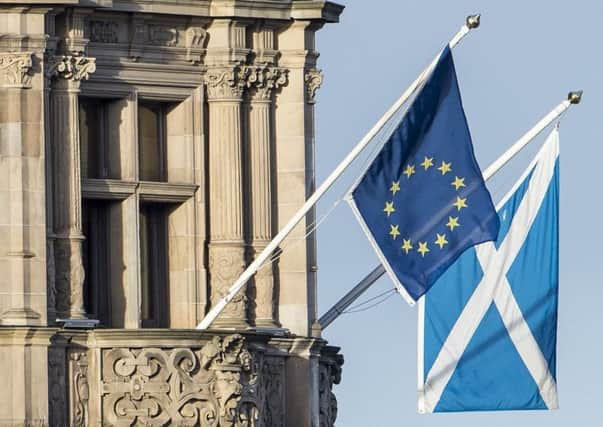Vanessa Glynn: Europe's benefits for Scotland
This article contains affiliate links. We may earn a small commission on items purchased through this article, but that does not affect our editorial judgement.


In fact, an examination of the nuances of trade patterns shows we’re likely to be better off developing business with the world’s largest economic bloc, rather than relying on a simple, one-off snapshot of our economy to tie ourselves to the UK government’s dangerously simplistic EU exit strategy.
First of all, it’s worth noting that the risks of a hard Brexit are huge. The Fraser of Allander Institute estimates there could be up to a 5 per cent reduction in GDP as a whole if Scotland is outside the single market, with a loss of up to 80,000 jobs. The UK’s National Institute for Economic and Social Research expects leaving the single market will be associated with a long-term reduction in UK trade of 22 to 30 per cent. Scotland would suffer as part of that decline.
Advertisement
Hide AdAdvertisement
Hide AdThe much-cited new trade opportunities would not compensate for the loss of barrier-free access to the world’s wealthiest single market on our doorstep – target markets such as China and India, cannot compensate if there are significant losses in the 44 per cent of all exports and 39 per cent of services that go to the EU. Any benefits here or from a US trade deal would take time to develop given the complexity of the different regulatory systems, and in any case most of our current exports to the US, including whisky, are tariff-free already.
But what of the EU’s attractions? Many sectors of the Scottish economy are dependent on EU labour. Ending freedom of movement will impact heavily across the Scottish economy, reducing the working population we need to fund our public services and pensions. In terms of trade, leaving the single market would impact particularly negatively on key growth and high productivity sectors such as food and drink, digital technologies and the university sector.
The single snapshot comparison also doesn’t take investment into account. Money coming from the EU, including from the European Investment Bank and private foreign direct investment, would decrease considerably on leaving. This would have a major effect on key industries where Scotland has forged ahead recently, such as renewables, and where UK funding has dried up.
Fundamentally though, it’s a matter of common sense over anti-EU zealotry. Scotland maintaining its place in the single market need not jeopardise existing trade flows with the rest of the UK – there is no inevitable binary choice between the UK and Europe unless we are forced into that position. But the long-term evidence suggests that if we do have to make it, then we should consider continuing to ally ourselves to the world’s richest and most successful grouping.
• Vanessa Glynn is chairwoman of The European Movement In Scotland
